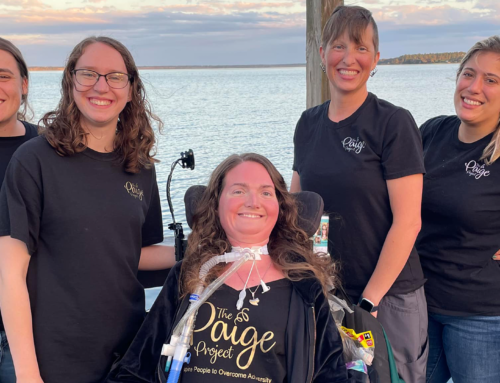Taking Steps To Better Integrate People With Disabilities In Church Life

As he passed by, he saw a man blind from birth. And his disciples asked him, “Rabbi, who sinned, this man or his parents, that he was born blind?” Jesus answered, “It was not that this man sinned, or his parents, but that the works of God might be displayed in him.”
John 9:1-3 (ESV)
In Jesus’ time, many Jews viewed personal catastrophe as a sure sign of God’s judgement in an individual’s life. Because God brings good fortune to the righteous, something like being born blind could only stem from God’s chastisement for personal sin or the sin of others. Such a view was common in those days, and the disciples were no different. It offered an easy explanation for why life is very complicated and messy.
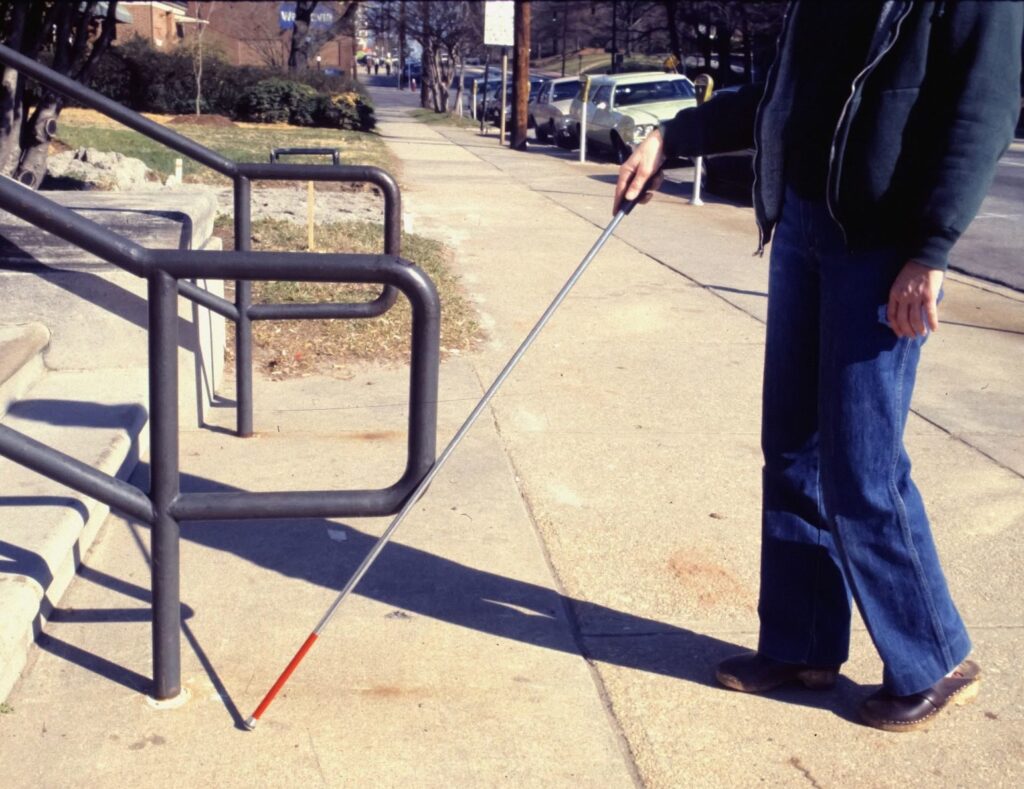
Jesus, however, dismisses this worldview. The blind man was not born blind because he or his parents sinned. Far, far from it.
According to Jesus, God allowed the man to become blind “that the works of God might be displayed in him.”
God was not punishing him; he was preparing him for profound blessing. When Jesus healed the man, not only could he now physically see, but also, he was beginning to see with new eyes how truly glorious God is. His blindness, far from being a divine punishment, was an avenue towards seeing and experiencing the glory of God. The disciples were missing this entirely, and Jesus pointed them to the truth.
Sadly, many of us in the church today are in danger of missing this truth ourselves as we encounter Christians with disabilities. While some adopt a position like the disciples, believing disability stems from sin, the vast majority of Christians miss this because they have not stopped and asked themselves, “What is God teaching me through this individual? How is he blessing me, and how is he blessing my brethren in their suffering?”
This neglect is a profound problem, and people with disabilities suffer for it. When Christians are afraid of investing their time to get to know someone with a disability, individuals with disabilities cannot find any solid footing in their churches. With no support system in place, they may feel there is no one in the church that can truly come alongside them and minister to them.
In the end, they suffer in silence, and some may end up leaving the church – or the faith – entirely. Brothers and sisters, this should not be so.
As Christians, we should be compassionate towards others in their distress.
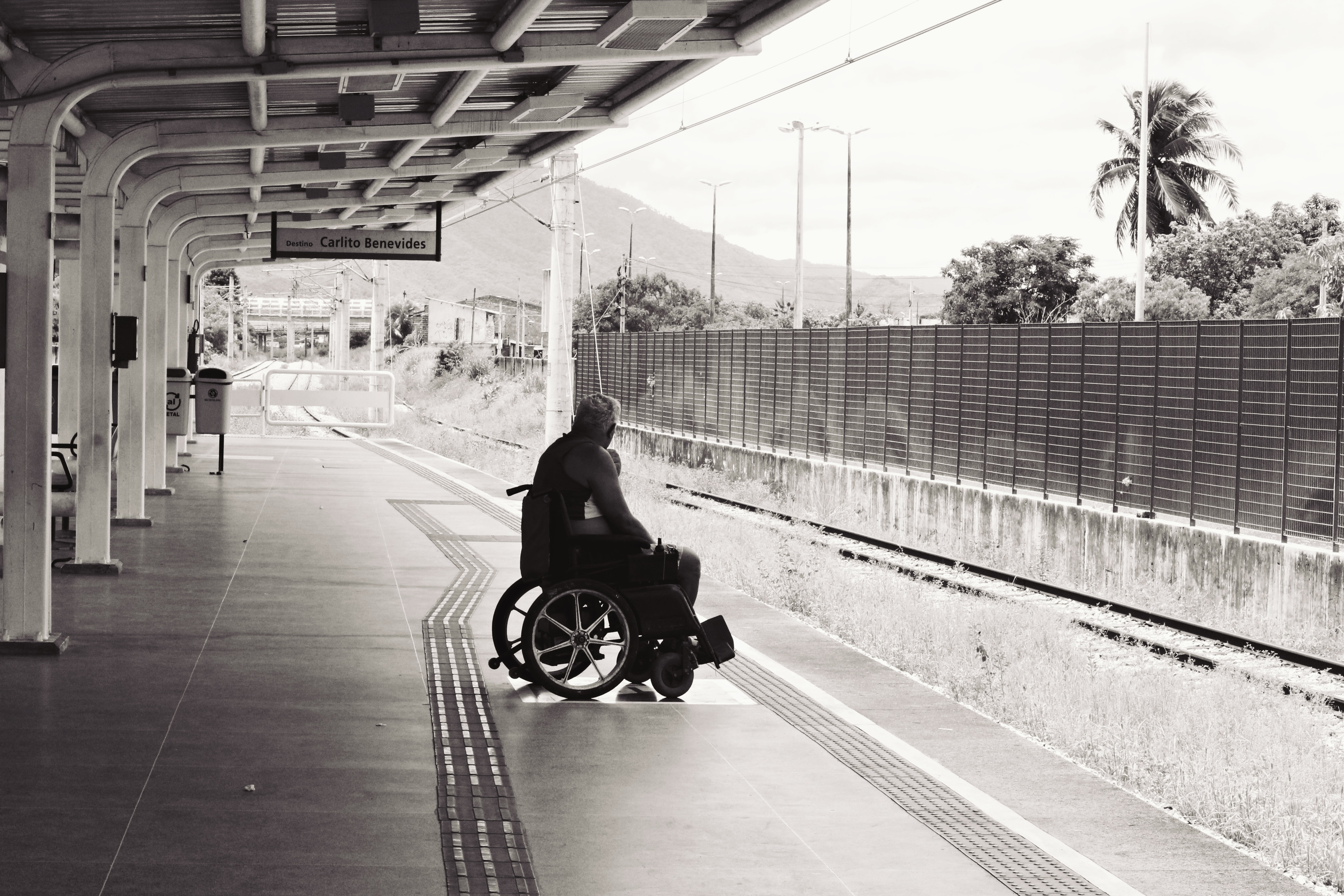
We love others in that we “rejoice with those who rejoice, and weep with those who weep”
Romans 12:15
We ought to “bear one another’s burdens, and so fulfill the law of Christ”
Galatians 6:2
Jesus’ words are clear: “Just as I have loved you, you also are to love one another. By this all people will know that you are my disciples, if you have love for one another”
John 13:34-35
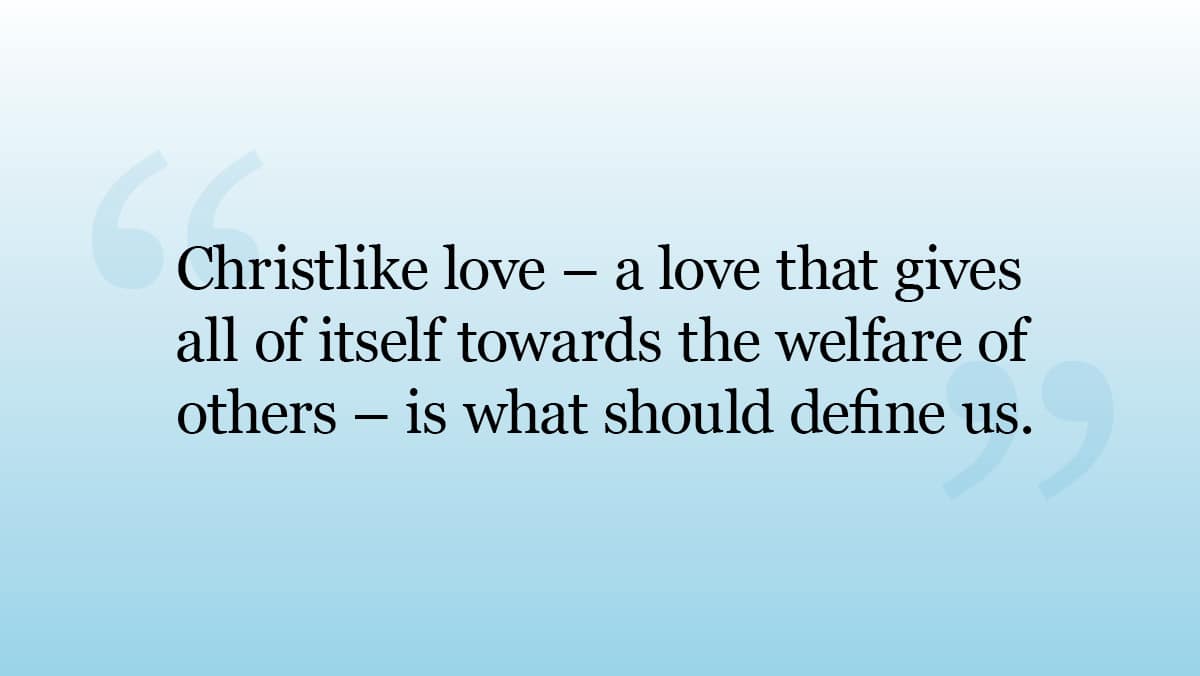
Christlike love – a love that gives all of itself towards the welfare of others – is what should define us.
This sacrificial love, chiefly emulated for us through Christ’s death on the cross, is what guides us to minister to the lowly.
We follow God’s way when we seek to bless those cast down: “The Lord is near to the brokenhearted and saves the crushed in spirit”
Psalm 34:18
Jesus did not shy away from the outcasts of his day; he spent his entire ministry “proclaiming good news to the poor” in fulfillment of Isaiah 61.
Luke 4:18
Like Jesus, we also should seek to be a blessing to others, particularly towards those society tends to cast off.
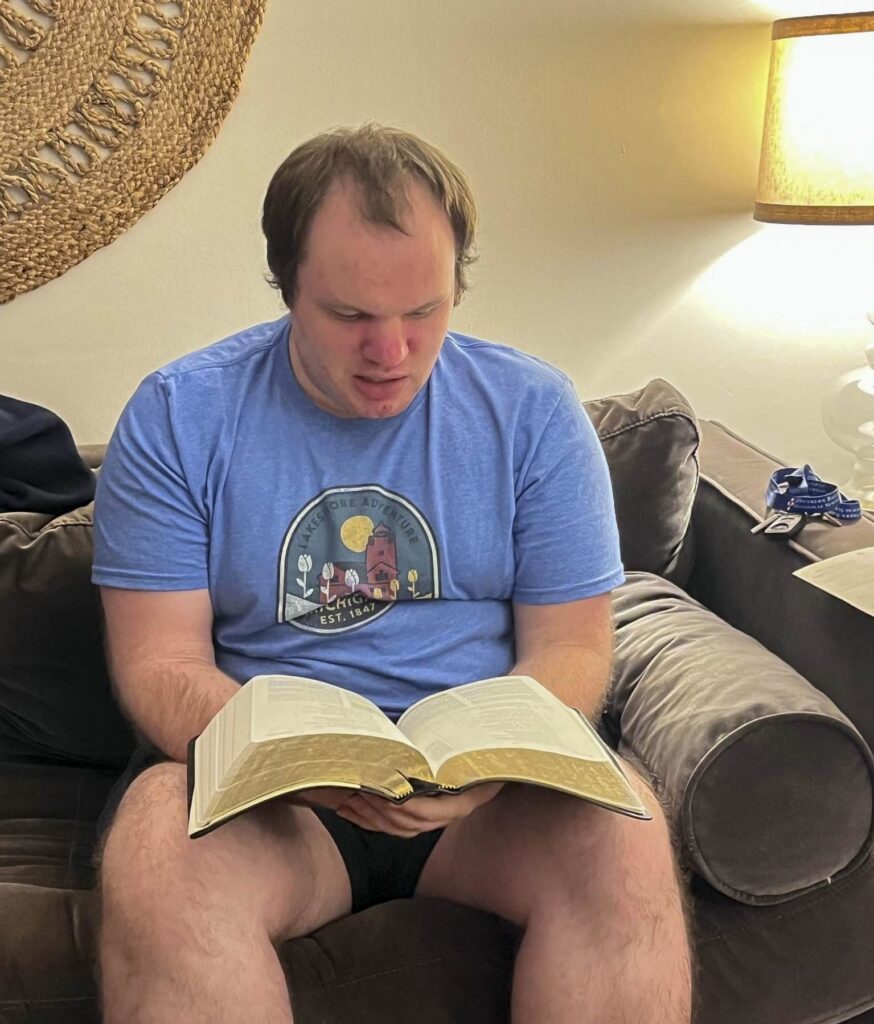
This doubtless includes people with disabilities, especially Christians with disabilities. They tend to struggle connecting their faith with their life, and it can be very frustrating for them. This can take many forms.
An autistic church member wants to fellowship with other members but is afraid of botching conversations. A family caring for their child with a traumatic brain injury struggle to connect to their church due to the high level of care their child requires. Another church member may wrestle with questions surrounding God’s goodness after a work accident that cripples her.
The end result that occurs is a weakened faith that steadily erodes trust in God. This is tragic, and sadly, many churches are ill equipped to tackle these issues. A recent study from Annandale and Carter (2014) found that the majority of theological schools do not extensively teach how disability affects various areas, especially pastoral care.
According to faculty, among the challenges cited include a lack of focus in the curriculum, a lack of available faculty interested in researching disability, and a lack of resources. If this is the case, the practical result is inevitable. If church leaders do not know how to effectively minister to people with disabilities, it’s only natural to expect laypeople won’t know either. Fortunately, that does not have to be the end of the story.
By the grace of God, steps can be taken to better integrate people with disabilities in church life.
It will be a long road, and we should expect challenges as we seek to achieve this goal. But as long as we truly seek God together as one body, he will surely be gracious to us as we seek to better serve those struggling to connect. This can be done by both pastors and laypeople.
Perhaps the biggest step you can take is actually approaching a congregant with a disability and begin knowing them as an individual. My co-writer and I can say this with confidence because we both have autism, and we have both personally experienced the grace of being welcomed at our churches. Like everyone else, individuals with disabilities desire deep relationships and community. Conversations might become awkward, especially with those who do not have shared experiences, but we earnestly want friendships that stay strong in the midst of pain and heartache.
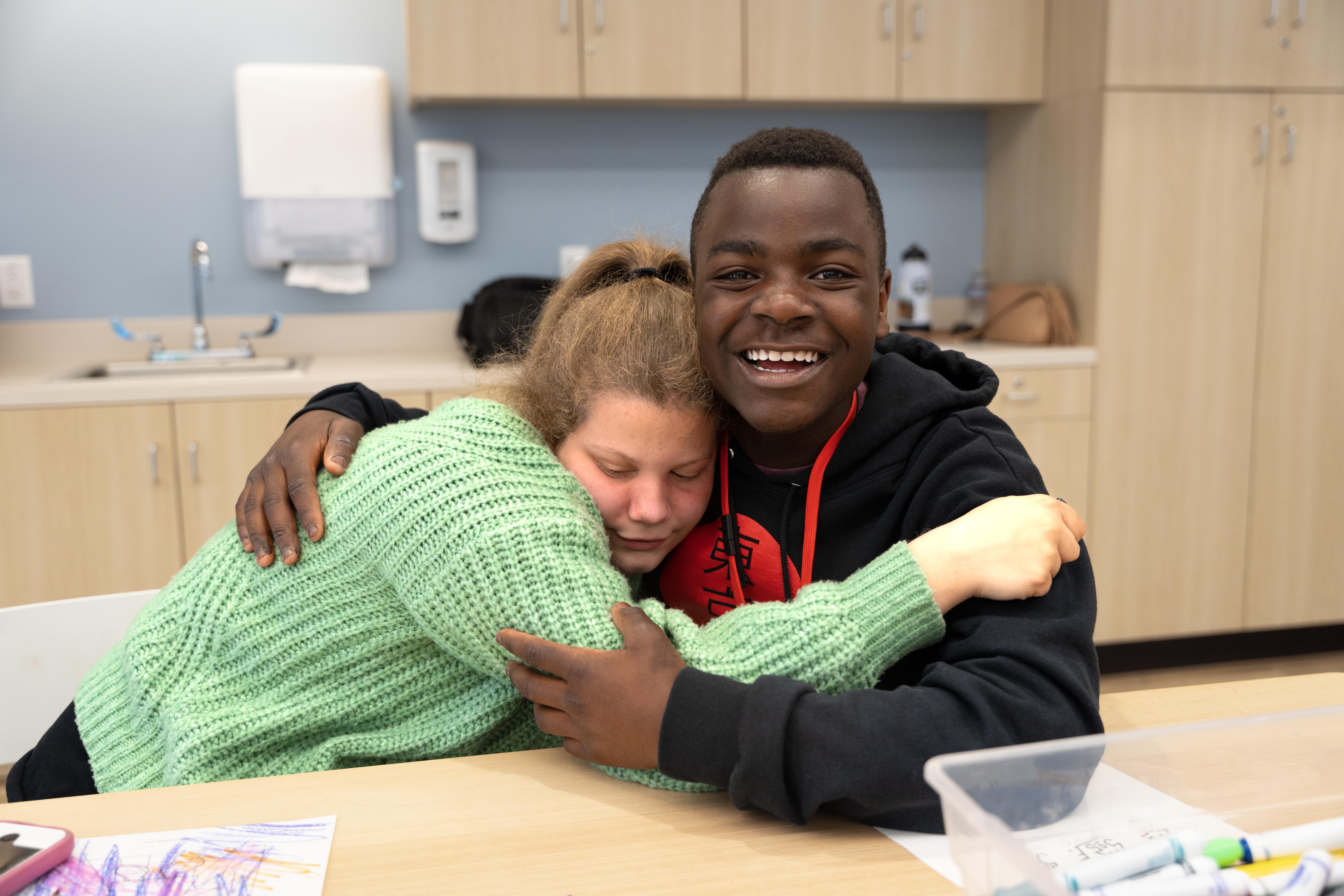
The Body of Christ is best suited for these kinds of relationships (1 Corinthians 12:12). Local churches should strive to develop a network of caring relationships. Each individual member is responsible for this great thing God has given us. Creating a caring community opens the door for both people with disabilities and typical church members to best experience the blessing of Christian friendship. In turn, these relationships generate further opportunities for integration.
Building this type of community begins when we start having genuine conversations with one another. Do not approach people with disabilities as merely a goal to fulfill; see them as fellow image bearers with dreams, fears, and passions like yourself. All it takes to begin is just one conversation.
“Let every person be quick to hear, slow to speak, slow to anger”
James 1:19
Another way you can help begin integrating people with disabilities in your churches is to help them discern how they can use their gifts in their immediate context.
God has given every believer certain gifts for the church’s edification (1 Corinthians 12:4-7); they are not to use them to exalt themselves over and against others but rather for God’s glory alone.
However, most Christians would admit that it can be difficult to know what exactly their giftings are and how they are to utilize them. This is especially true for Christians with disabilities.
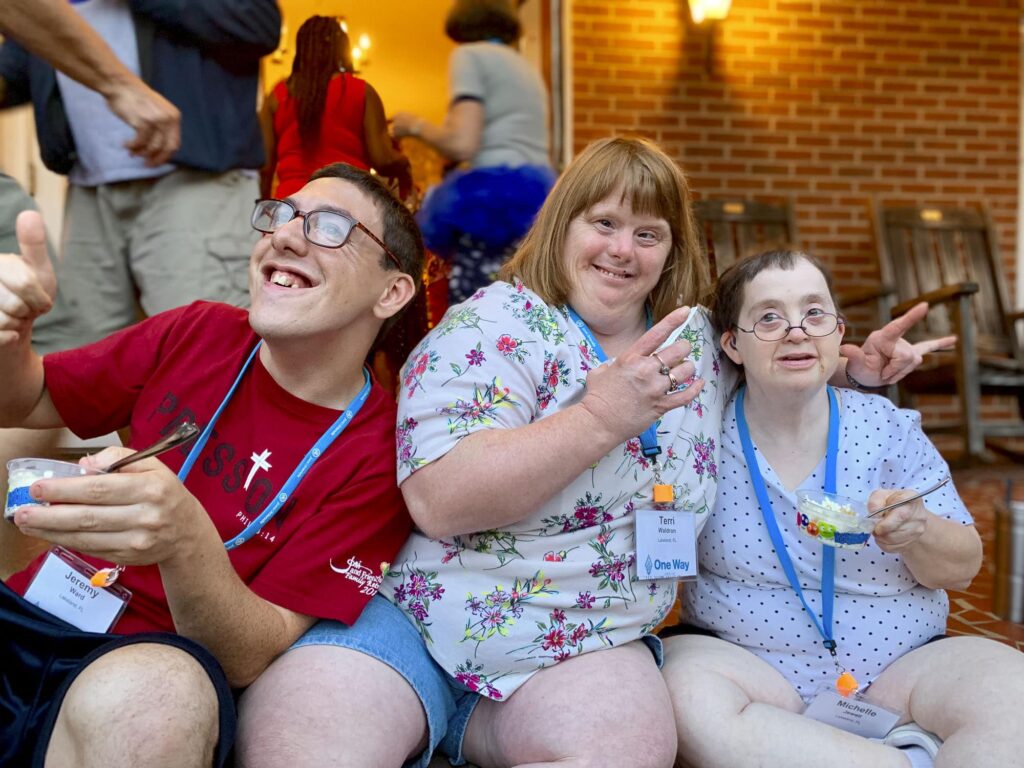
Besides properly discerning their gifts, some may struggle to believe others even want them to find or use their gifts. Past experiences have often been damaging. Some parents and caretakers may be so busy focusing on caring for their child that they haven’t stopped and considered what gifts their child can bring to the table.
This is a deep problem, especially since “the parts of the body that seem to be weaker are indispensable”
1 Corinthians 12:22
Building off of established relationships, church members can help their brethren with disabilities find ways to best serve their church. Patience and grace towards them are required, for these conversations will likely take a while. It should be constantly prayed over (James 5:16b) and ultimately guided by God’s Word (2 Timothy 3:16-17). Over time, your friend will reasonably conclude what gifts he has. Helping him know how to best utilize his gift in the church will go a long way in integrating him into congregational life. As there are diverse gifts, so also there are multiple applications.
“All these are empowered by one and the same Spirit, who apportions to each one individually as he wills”
1 Corinthians 12:11

Be prepared for misunderstandings from other members who have rigid views on how gifts should be expressed. All things should be done “decently and in order” (1 Corinthians 14:40), but that does not mean hindering church members with disabilities from freely utilizing their gifts their way. As long as what they are doing glorifies God and builds up others, there is nothing wrong with what they are doing.
Above all else, the gospel must be at the center. If it is not, everything is done in vain.
It is through the gospel alone that we experience true life, given to us by the Son of God (John 3:16-17, 10:10). It is the only proper backdrop for effectively integrating people with disabilities in local churches. The message of salvation – that Jesus came to live and die for sinners and that he rose again from the grave – is good news. With this in mind, we should not seek to integrate people with disabilities merely because we want to include them.
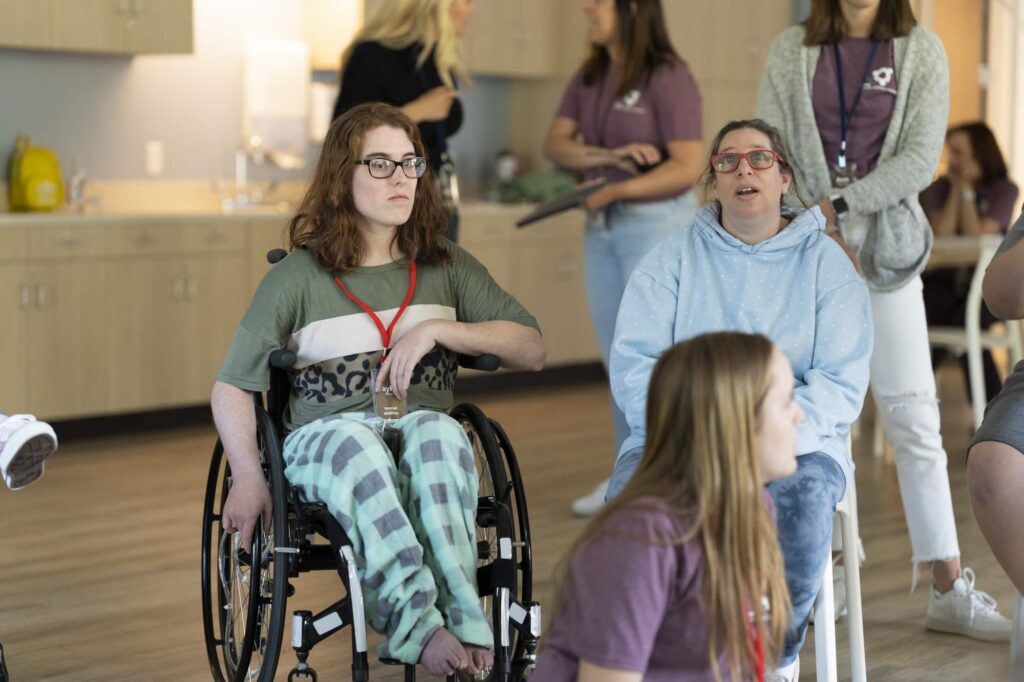
Nor should we seek integration just so we can show our local community how to best serve people with disabilities. We integrate precisely because we know God redeems people from every tribe (Revelation 5:9-10) and will dwell with them at the end of the age (Revelation 21:1-4). Our churches should echo this coming reality, and one effective means to that end is including people with disabilities into gospel-shaped church life.
May the Lord bless you as you seek to take those steps, as small as they might be, towards that goal. Together, let’s see the full works of God!
Written By—Ray Chumbler and Derek Stine
Ray Chumbler is known as the Bible Guy at his church because he provides Bibles as the need arises. Ray lives in Kentucky.
Derek Stine is finishing up his training at the Southern Baptist Theological Seminary, earning a Master of Divinity in Biblical Counseling. He is currently a member of Third Avenue Baptist Church in Louisville, Kentucky.
Edited by David C. Deuel, Nathan G. John & Kevin Avery
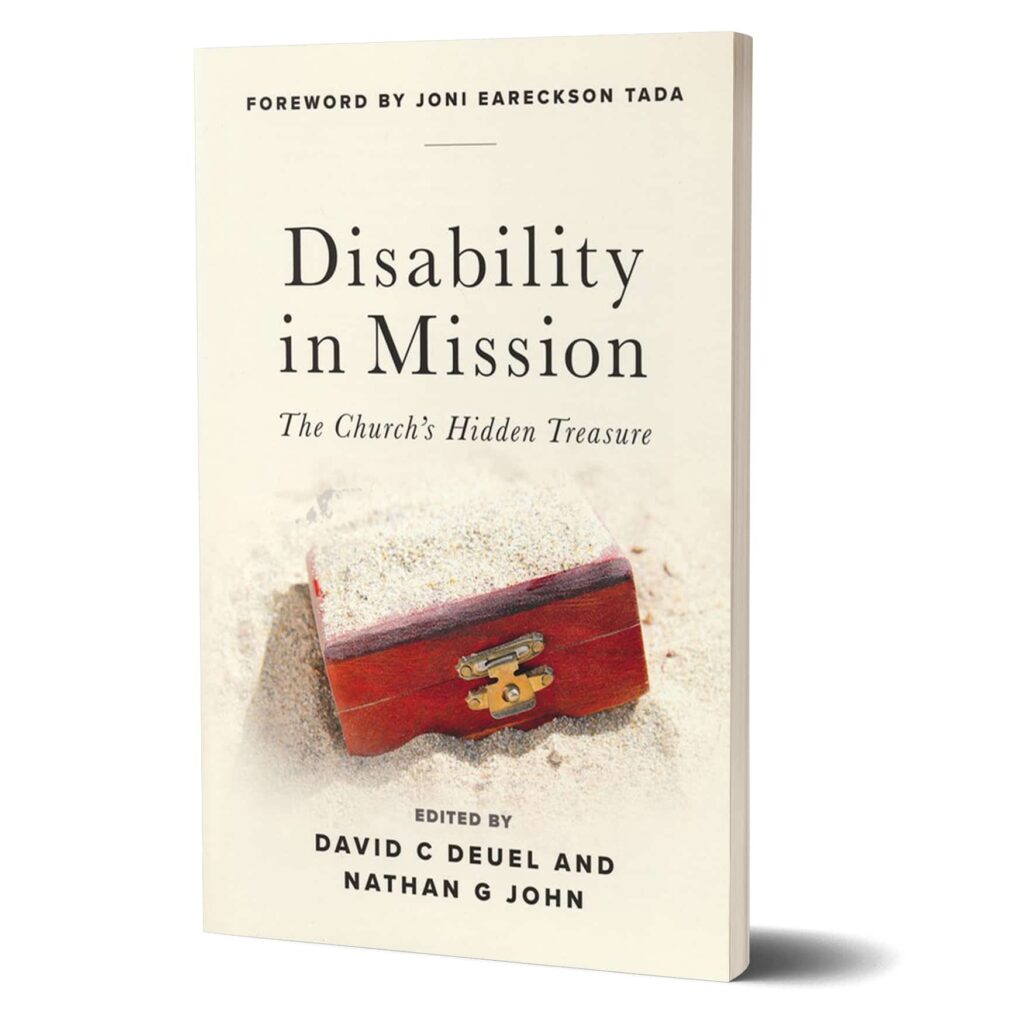
Disability in Mission
Disability in Mission: The Church’s Hidden Treasure outlines a radical change in approaches to missiology, missions, and praxis for the twenty-first-century global cultural context. It explores a pattern whereby God works powerfully in missions through disability and not in spite of it.


